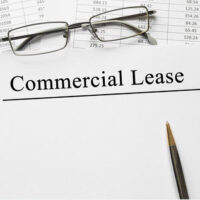Commercial Leases in Chapter 11 Bankruptcy

Filing for bankruptcy in Tampa Bay is a stressful process for any business owner. Generally speaking, business owners file for one of two different types of bankruptcy: Chapter 7 or Chapter 11. In a Chapter 7 bankruptcy, the business owner does not have any real options for keeping the business open since this is a liquidation bankruptcy. As such, the business assets largely will be sold in order to pay off debtors, and the business can be eligible for a discharge of remaining debts. In such situations, it is clear to both the debtor (typically also a commercial tenant), as well as the commercial landlord, that the debtor will be vacating the property. While this raises its own set of problems, Chapter 11 bankruptcy can be more complicated for both debtors and commercial landlords alike.
Since Chapter 11 bankruptcy is a type of reorganization bankruptcy, business owners often want to keep their doors open and continue running the business as long as they are able to keep up with payments under the repayment plan. When a commercial landlord learns the a commercial tenant is filing for Chapter 11 bankruptcy, the commercial landlord often has concerns about whether or not the tenant plans to remain in the space. Sometimes the Debtor is already in default at the time of the filing. After all, a business owner can keep the company open even if that business owner moves to a smaller, less-expensive space. We will tell you more about options with regard to commercial leases for debtors in a Chapter 11 cases, as well as information that commercial landlords often want to know.
Options for the Tenant Debtor: Assume the Lease or Reject the Lease
Let us begin from the premise that the debtor wants to keep his or her business open. If this is the case, then the debtor has the option of doing one of two things with regard to the commercial lease: “assuming” the lease or “rejecting” the lease under the U.S. Bankruptcy Code § 365. What does each of these options mean? It really depends.
First and most importantly, whether the debtor decides to assume or reject the lease, the debtor is required to continue complying with the terms of the lease even after filing for Chapter 11 bankruptcy. In other words, filing for bankruptcy does not provide an excuse for failing to pay commercial rent.
Now, what is the difference between assuming and rejecting a lease? When a business debtor wants to remain in the commercially leased space, she can assume the lease. When a debtor assumes a lease, she agrees to repay any defaults that exist (any back rent owed), and she also agrees to continue making payments on the lease. Moreover, assuming the lease also requires the debtor to provide the commercial landlord with assurance that she will continue to make payments according to the terms of the lease.
If the debtor wants to leave the commercial property and extract herself from the commercial lease through the Chapter 11 bankruptcy, then she has the option of rejecting the lease.
Landlord Options When the Debtor Does Not Want to Stay in the Lease
When a commercial tenant rejects a lease as part of a Chapter 11 bankruptcy proceeding, the commercial landlord has the option of seeking an unsecured claim from the bankruptcy estate for all or part of what is owed according to the terms of the lease. In most situations when the debtor does not want to stay in the property, she will reject the lease and the commercial landlord will seek an unsecured claim under the U.S. Bankruptcy Code § 502.
However, in some situations, the debtor might want to “assign” the lease. This means that the debtor does not want to stay in the commercial property but also does not want to reject the lease. In this situation, the debtor first will “assume” the lease as we discussed above, but then can “assign” it to another commercial tenant. The party to whom the lease is assigned becomes responsible for the remaining terms of the lease to which the debtor initially was obligated.
Contact a Tampa Bankruptcy Lawyer
Given that Chapter 11 bankruptcy is extremely complex, any business owner who is seeking bankruptcy protection in the Tampa Bay area should work with an experienced Chapter 11 Tampa bankruptcy attorney to handle commercial lease issues. Contact Samantha L. Dammer today.
Resources:
law.cornell.edu/uscode/text/11/502
law.cornell.edu/uscode/text/11/365
